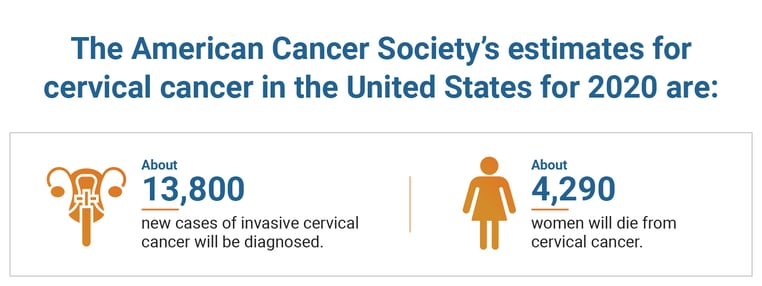January is Cervical Health Awareness Month
Posted by Jane Kirsty Pardo
All women, regardless of age, race, and lifestyle, are at risk of cervical cancer. New cases continue to increase each year, and the prevalence of the condition has prompted the United States Congress, American Social Health Association (ASHA), and the National Cervical Cancer Coalition (NCCC) to start the Cervical Health Awareness campaign, driving to substantially reduce new cases each year.
.png)
This is a huge opportunity to increase public knowledge about Human Papillomavirus (HPV) and cervical cancer, which is known to be a preventable disease. We at Meditab join the organizers in spirit to achieve their goal of getting more women protected from cervical cancer. Let's start by knowing more about HPV and the applicable screening and preventive measures.
Is HPV common?
Human Papillomavirus (HPV) is a viral infection usually transmitted through direct contact (i.e. sexual activities). Since it’s easily spread, it’s more likely that sexually active individuals may have HPV.

Source: American Cancer Society
What are the complications caused by HPV?
HPV may cause:
- Oral and respiratory lesions
- Cervical cancer
- Cancers of the vulva, vagina, penis, or anus
What are some preventive measures?
There’s still no treatment for HPV, but there are plenty of options for the conditions caused by the virus. It’s best to know beforehand by undergoing either of the following options:
Vaccination
HPV vaccines protect an individual against HPV that may cause cervical cancer. The Centers for Disease and Cancer Prevention recommends all women to get vaccinated at the age of 11 or 12.
.png)
Screening Tests
Pap test or Pap smear is an exam that checks for cervical cancer in women. This test reveals changes in an individual’s cervical cells, which may turn into cancer if not treated appropriately.
An HPV test may detect the virus that can cause cervical cell changes in women. This is approved as a primary cervical cancer screening.
Cervical cancer is highly preventable. This Cervical Health Awareness month, you can help spread the initiative of getting tested early. No one should die of a preventable disease—it’s time to take good care of your cervix and help others do the same. Get tested and vaccinated today!
Share this post: on Twitter on Facebook on Google+

.png)